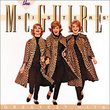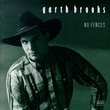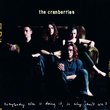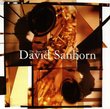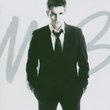| All Artists: Benjamin Britten, Peter Pears, Dietrich Fischer-Dieskau, Melos Ensemble of London, London Symphony Orchestra and Chorus Title: Britten - War Requiem / Vishnievskaya · Pears · Fischer-Dieskau · LSO · Britten Members Wishing: 0 Total Copies: 0 Label: Decca Release Date: 10/25/1990 Genre: Classical Styles: Opera & Classical Vocal, Historical Periods, Early Music, Modern, 20th, & 21st Century Number of Discs: 2 SwapaCD Credits: 2 UPCs: 028941438324, 028941438324 |
Search - Benjamin Britten, Peter Pears, Dietrich Fischer-Dieskau :: Britten - War Requiem / Vishnievskaya · Pears · Fischer-Dieskau · LSO · Britten
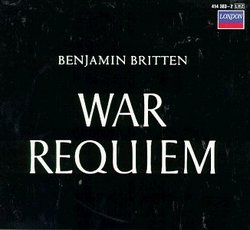 | Benjamin Britten, Peter Pears, Dietrich Fischer-Dieskau Britten - War Requiem / Vishnievskaya · Pears · Fischer-Dieskau · LSO · Britten Genre: Classical The composer's 1963 recording remains, after 35 years, the preferred account, unequaled in its scope and emotional intensity. It brings together the three soloists for whom the work was written, chosen not only because of ... more » |
Larger Image |
CD DetailsSynopsis
Amazon.com essential recording The composer's 1963 recording remains, after 35 years, the preferred account, unequaled in its scope and emotional intensity. It brings together the three soloists for whom the work was written, chosen not only because of their artistry but because they represented three of the nations most deeply scarred by World War II--the Soviet Union, England, and Germany. Benjamin Britten holds the vast forces together, and the superbly engineered recording captures with chilling exactitude the power and the nuance of his ardent, visionary interpretation. --Ted Libbey Similarly Requested CDs
|
CD ReviewsA collaboration between the living and the dead. C. B Collins Jr. | Atlanta, GA United States | 03/27/2006 (5 out of 5 stars) "As the armed forces of the United States struggles in Iraq, this work of genius should be re-discovered. I agree with all the other reviewers who speak of Britten's considerable musical talent. But I wish to comment on the fact that this work is a collaboration between a living composer and a deceased poet. Benjamin Britten selected 9 angry war poems by Wilfred Owen, and integrated these poems into the Latin Mass for the Dead. The poems are strategically integrated with both the instrumentation and the Latin mass. When we hear "What passing-bells for these who die as cattle?" we know we are in for some confrontational lyrics and music. Britten is masterful in bringing to life the personification of Death in the passages "Out there, we've walked quite friendly up to Death...We've sniff'd the green thick odour of his breath...He's spat at us with bullets and he's coughed schrapnel. We chorused when he sang aloft...We whistled while he shaved us with his scythe." The terrible majesty of a war machine is captured in the music and poetry in the passages: "Be slowly lifted up thus long black arm. Great gun towering toward Heaven, about to curse, reach at that arrogance which needs thy harm and beat it down before its sins grow worse; but when thy spell be cast complete and whole, may God curse thee and cut thee from our soul." The sense of tragedy increases in the music and lyrics as we hear about a man, drifting in and out of consciousness on the journey to become a corpse: "Move him, move him into the sun - gently its touch awoke him once. At home, whisp'ring of fields unsown, always it woke him, woke him even in France." And then we come to Owen's masterpiece: "So Abram rose, and clave the wood, and went, and took the fire with him, and a knife, and as they sojourned both of them together, Issac the first-born spake and said, 'My Father, Behold the preparations, fire and iron, but where the lamb for this burnt offering? Then Abram bound the youth with belts and straps and builded parapets and trenches there, and stretched forth the knife to slay his son. When lo! An Angel called out of heaven, saying, Lay not thy hand upon the lad! Neither do anything to him. Behold, a ram caught in a thickett by its horns; offer the Ram of Pride instead of him. But the old man would not so, but slew his son - and half the seed of Europe, one by one, and half the seed of Europe, one by one." If you read the lyrics while listening, you may find, like me, that this degree of tragic stupidity and needless horror is difficult to fully absorb. Britten had to collaborate with a deceased but still angry vibrant voice in this poem by Wilfred Owen. The music must allow the pain and sadness and bitter irony of the poem to remain intact - which it does - certainly revealing Britten's considerable genius. But Britten does not leave us in this state, but moves toward resolution, not only in the musical composition and the mass, but also in the final poem where a soul meets a soul with "I am the enemy you killed, my friend. I knew you in this dark; for so you frowned yesterday through me as you jabbed and killed. I parried; but my hands were loath and cold, Let us sleep now." Enough said. Go listen." The Original and still the best Klingsor Tristan | Suffolk | 08/16/2005 (5 out of 5 stars) "This was the piece of music that first really turned me on to classical music, listening to the very first performance from Coventry Cathedral on a small tranny radio. What I failed to realise then was that this massive impact was achieved by brilliant structural simplicity. The whole work is effectively a study on the tritone, the 'diabolus in musica', that most disturbing and unstable of intervals. From the bells at the start to the harmonically ambiguous endings of the first and second movements and of the entire work; from the alternating tonics of the boys' Te Decet Hymnus to the alternating tintinnabulations of the soprano's Sanctus; from the fanfares of the Dies Irae to the two halves of the tenor's ineffable Dona Nobis Pacem at the end of the Agnus Dei. All these and countless other examples revolve around or grow out of the tritone. And what better musical image for war could there be than those two most irreconcilable notes in the scale? Then, of course, there is the inspired concept of juxtaposing the hieratic incantations of the Latin Mass for the Dead with the burning anger of Wilfred Owen's First World War poems. There are, in fact, three tiers of performers in the War Requiem - the boys' choir and chamber organ, objective and dissociated in the distance; the soprano, chorus and orchestra singing the Latin Mass at, as it were, the centre of things; and the tenor and baritone with the chamber orchestra delivering Owen's bitter poems in the intimate and confidential foreground. The different perspectives of these three groups are a vital aspect of any performance and are ideally realised by producer, John Culshaw (of Golden Ring fame) and his team on this premiere recording. After that first performance and subsequent ones in London, this recording was awaited with great anticipation. But even the most optimistic marketing man at Decca wasn't prepared for the overnight success of the enterprise. Classical music albums - especially of new music - weren't supposed to sell like that. From the iconic (and, at the time, unique) simplicity of the cover to the superlative standard of the recorded sound, never mind the quality of the performance itself, it outstripped the highest expectations. And what of this performance? These were the performers for whom the piece was written - from the three soloists (specifically, a Russian, an Englishman and a German) to the inimitable Jimmy Blades in the chamber orchestra's percussion department. Famously, the Soviet Minster of Culture prevented Vishnevskaya from performing at the premiere and Heather Harper had to stand in and learn her part in just 10 days. By the time she recorded the part, her voice was not what it was in 1962. The purity of tone and the anguished commitment of her singing at moments like the Lacrymosa that one remembers from those first performances are very different from the more distanced interpretation with a touch of Slavic wobble that we get from Vishnevskaya. Different, but not necessarily better or worse. Pears and Fischer-Dieskau are, dare I say, peerless. Glorious singing from both: human, bitter, angry, touching, heartbreaking (Move Him into the Sun), heart-restoring as they duet the two dead enemies of Strange Meeting to sleep. The touch of a German accent in Fischer-Dieskau's otherwise immaculate English puts a new perspective on many of the poems that fall to his part (not just Strange Meeting) - but, after all, the Germans must have shared all the same feelings that Owen expressed so poignantly in his poetry. As for Britten's control over all these forces (the first time, I think, that he hadn't shared the conducting, usually with Meredith Davies), it is as masterly as you would expect from the creator of it all - and one who was an illuminating conductor, too, both in his own and in others' music. There have been many other recordings since this one. Some may have matched it in some departments some of the time. None can touch it for its inspired expression of a masterpiece, fresh from the making. " I bought the original recording when it first came out in 19 Mr. Ian George Fraser | Brazil | 07/03/2007 (5 out of 5 stars) "There arent that many things you can be proud of in life, but I bought the original recording of this in 1966. Sadly in the course of all the many transmigrations over a long life I no longer have it - I think I gave it to my son, but I think it's significant that [...] is still offering the remastered version almost unchanged. There can't be many recordings that were done first, done once and then never surpassed. I havent heard this music for twenty years but I still have it in my head, especially the boys' choir, the extraordiarily violent Dies Irae and then that peculiar, weird ending. " You were my enemy, my friend..." Forgive me if after 20 years or more I can't remember the words exactly. I don't think it was a deliberate irony to choose the German, Dietrich Fischer-Diskau as the baritone but for me he was the best singer. I'm sure I'm going to have a few reservations about Peter Pears when I hear this again after so many years. I didn't think his tone was masculine enough and I didn't like the way he overarticulated ( killed = keeled etc). But to me Benjamin Britten had a sound like no other composer, which puts him up there with Beethoven, Brahms, Wagner and Stravinsky and one or two others and this is such a wickedly constructed piece with its references to the medieval mass... There's not a lot of the 20th century that will still be performed a hundred years from now. Surely this will be."
|



